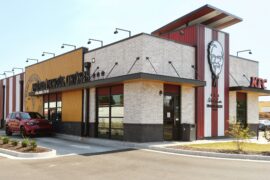The Basel, Switzerland-headquartered Bell Food Group is participating in Dutch food technology company Mosa Meat’s next financing round with EUR 5 million that will be utilized for construction of an industrial plant and scale-up of technology to produce cultured beef. The aim is to have product on the market in Europe by 2022.
Bell Food had already taken a EUR 2 million share in Mosa Meat two years ago. It supports the Maastricht-based company’s development and research work with expertise and know-how as one of the leading producers and marketers of meat and charcuterie products in Europe. The Group also has a strong foothold in the development of innovative nutrition concepts, and it invests constantly in new production technologies and trends for customer-specific solutions.

The Mosa Meat start-up, which has its registered office in Maastricht, the Netherlands, has developed technology for producing cultured beef directly from animal cells. The co-founder and head of research at the company is Professor Mark Post of the University of Maastricht, who has a global reputation as a pioneer in the production of cultured meat.
Mosa Meat unveiled the world’s first cultured hamburger in 2013. The scientific milestones for bringing the product to market have been achieved on schedule over the past years. The first pilot production plant will commence operation in 2021. In the course of 2022, the industrial production line will start and the first products will be launched on a small scale in selected restaurants in test markets in and possibly outside Europe. In addition, plans are in place to commission a high-volume production plant by 2025.

How Cultured Meat is Produced
In contrast to conventional meat, cultured meat does not grow inside animals but through tissue cultivation in the laboratory. This requires extracting stem cells from muscle, for instance from anaesthetized cattle, by way of a biopsy
A bioreactor takes charge of cell growth, in the same way it is used in the production of cheese and beer. The cells inside the bioreactor multiply in the same way as they would inside the animal. A small sample can lead to the generation of trillions of cells. These cells are then used to develop muscle cells in the next process step. These cells grow and form muscle strands over time.
The end product cannot be differentiated from conventional minced beef under the microscope. A sample taken from a single cow is sufficient for 800 million muscle strands – enough to produce about 80,000 Big Macs.
According to a number of studies, global meat consumption will rise by approximately 3% per year up to 2030. Current production methods will no longer be able to sustainably meet this increase in demand. Some analysts expect that cultured meat may achieve a market share of 10% by 2030. With the investment in Mosa Meat, the Bell Food Group is supporting the long-term development of new production methods that offer a possible alternative to consumers who are re-evaluating their consumption of meat for ethical reasons.
About Bell Food
The Bell Food Group’s range of products includes meat, poultry, charcuterie, seafood and convenience food. With the brands Bell, Eisberg, Hilcona and Hügli, the company is active in the retail trade as well as the foodservice sector and the food processing industry. Around 12,500 employees in 15 countries generate annual revenues of over CHF 4 billion.






